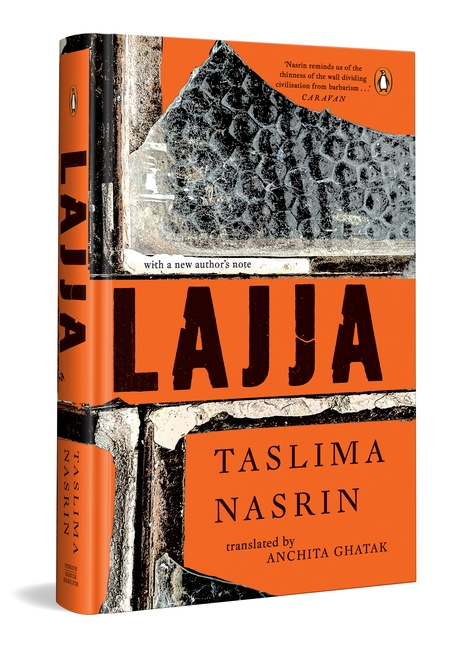
A special collectible edition from one of the most eminent voices of our generation
A savage indictment of religious extremism and man’s inhumanity to man, Lajja was banned in Bangladesh but became a bestseller in the rest of the world. This brand-new translation marks the twentieth anniversary of this controversial novel. The Dattas Sudhamoy and Kironmoyee and their children, Suronjon and Maya have lived in Bangladesh all their lives. Despite being members of a small Hindu community that is terrorized at every opportunity by Muslim fundamentalists, they refuse to leave their country, unlike most of their friends and relatives. Sudhamoy believes with a naive mix of optimism and idealism that his motherland will not let him down. And then, on 6 December 1992, the Babri Masjid at Ayodhya is demolished by a mob of Hindu fundamentalists. The world condemns the incident, but its immediate fallout is felt most acutely in Bangladesh, where Muslim mobs begin to seek out and attack the Hindus. The nightmare inevitably arrives at the Dattas’ doorstep and their world begins to fall apart.
Imprint: India Hamish Hamilton
Published: Sep/2025
ISBN: 9780143419211
Length : 344 Pages
MRP : ₹599.00
What do the strong women we know, go through to become who they are? What goes on behind the scenes – and what makes a woman strong? Many of them have fought to bring the world where it is today. And we must continue to be inspired by them so we can continue their paths […]
